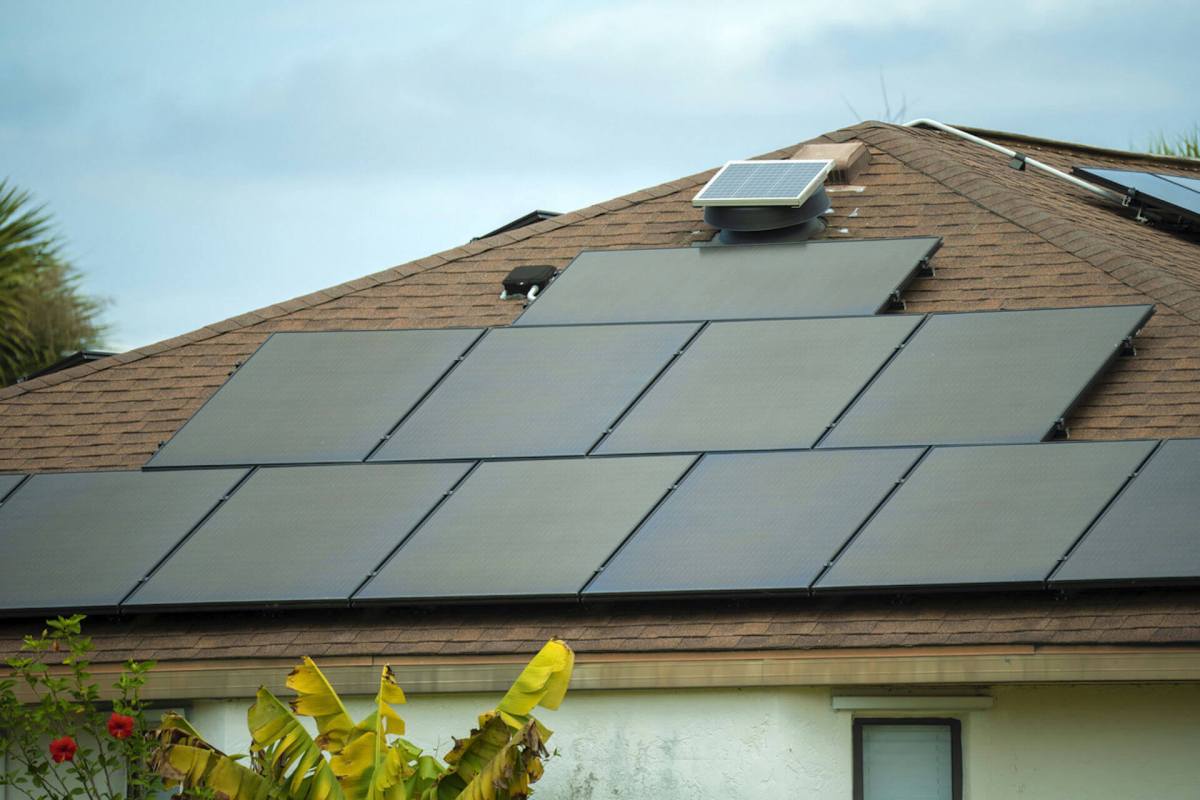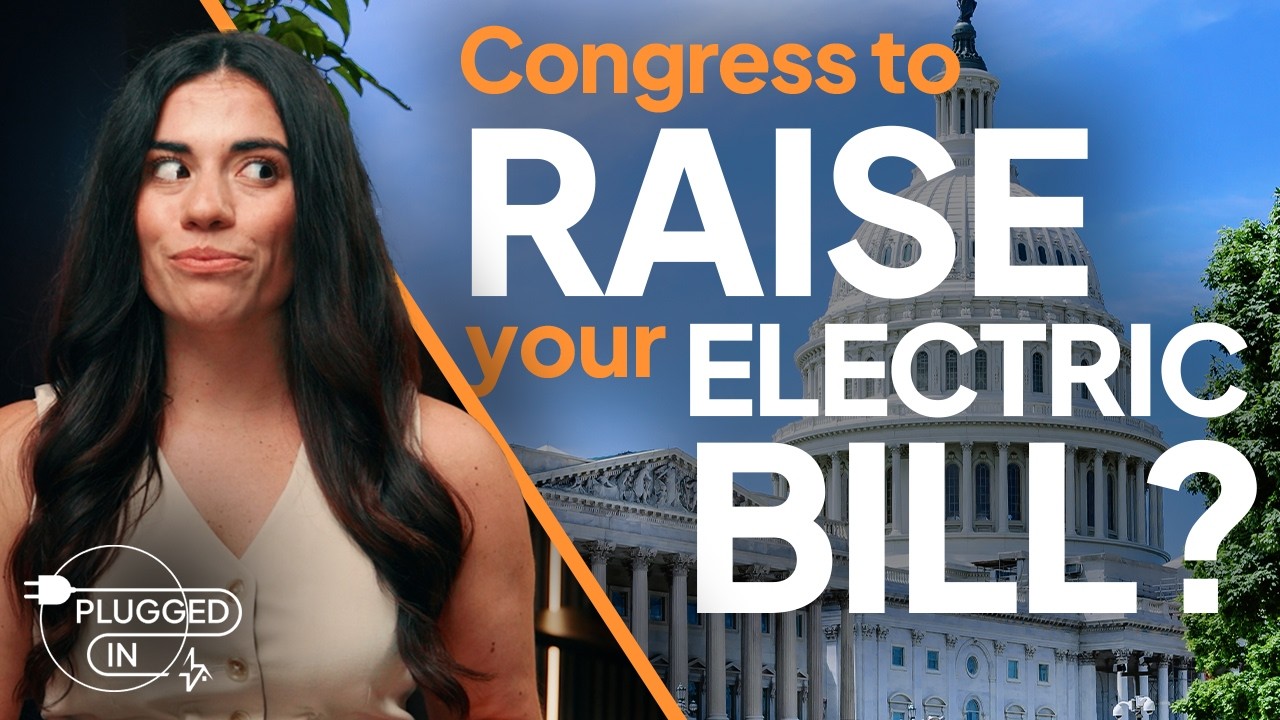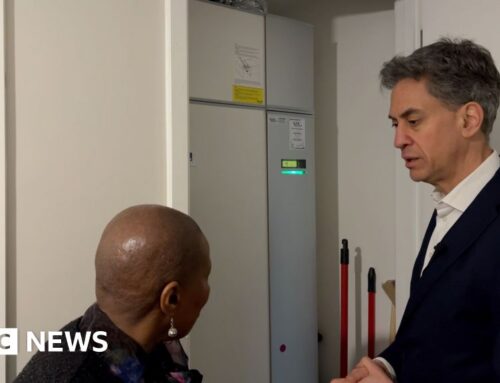Senators warn proposed bill could have devastating effect on clean energy workforce: ‘Will
June 22, 2025
The “Big Beautiful Bill” that aims to reshape the United States’ budget could have devastating effects on the clean-energy workforce, a leading industry expert explains.
What’s happening?
Federal lawmakers are currently discussing a budget bill proposed by Congressional Republicans that could dismantle, among other things, huge portions of the Inflation Reduction Act — perhaps most notably, the tax breaks and incentives available for solar-energy projects.
EnergySage, a solar energy consulting company and independent source of industry information, has reported on the massive impact this could have on green-energy jobs.
Nowhere might this be more evident than in Nevada. If the bill passes as is, the company warns, Nevada could lose nearly 22,000 clean-energy jobs.
“From solar production to lithium mining, Nevada is at the forefront of the clean energy revolution,” Senator Catherine Cortez Masto said in a statement to EnergySage. “Dismantling the IRA tax credits will destroy thousands of good-paying, union jobs, raise energy costs for working families, and shrink the Silver State’s [gross domestic product].”
Nevada is a clean-energy leader and has the highest solar generation per capita among all states, according to EnergySage.
Nevada Senator Jacky Rosen, the company also noted, posted on social media in mid-May that the passage of the current proposal could mean that “NV will lose thousands of good-paying jobs and families will see higher energy bills.”
In mid-June, the Indianapolis Star reported that data from the Solar Energy Industries Association indicates that “roughly 4,000 solar jobs in Indiana that could be at risk” if the bill were to be approved in its current form. In their own mid-May statement, the SEAI said the budget, as drafted at the time, could “result in nearly 300,000 current and future American jobs to be lost, including 86,000 in solar manufacturing.”
Why does this matter?
In April, Nevada had the highest unemployment rate of all U.S. states. Big hits to major employers could be another blow for residents and especially families, who could lose out on income and employment benefits like health insurance.
As the drafted budget bill is also currently poised to roll back the government-funded insurance programs Medicare and Medicaid, the effects could be compounding. Those compounding effects could also show up for consumers who had planned to lower their utility bills by installing clean-energy options like home solar systems, which can bring energy costs down to nearly $0 a month in some cases.
Among the many proposed cuts in the GOP’s “Big Beautiful Bill” are those aimed at the Investment Tax Credit, also known as the Solar Credit, which currently covers 30% of installed solar-panel system installation costs.
As PV Magazine has reported, the draft from the Senate Finance Committee would cut the ITC to 60% of its current value by the end of 2026, to 20% by the end of 2027, and scrap it altogether for projects beginning in or after 2028.
More From EnergySage
????Go deep on the latest news and trends shaping the residential solar landscape
Solar is the fastest-growing electricity source in the U.S., and with new breakthroughs happening all the time to make solar panels even more efficient, anything that slows its growth could spell bad news for the economy domestically and the environment worldwide.
What can I do about this?
With the future of renewable-energy credits uncertain, anyone interested in getting solar panels may want to act quickly.
Purchasing solar panels before the credits are cut back by Congressional action could mean thousands of dollars saved in your household budget. In fact, EnergySage estimates that, by using its free services, the average person can shave up to $10,000 of installation costs.
EnergySage even has a free mapping tool that shows, for each state, the average cost of a home solar-panel system, as well as available incentives. By using the free map, listed incentives, and installation-comparison tools, consumers can ensure they find the best price from a trusted company.
As the bill has not yet been passed, those wishing to voice their thoughts about the budget proposal and its potential effects still have time to reach out to their elected officials.
Join our free newsletter for good news and useful tips, and don’t miss this cool list of easy ways to help yourself while helping the planet.
Search
RECENT PRESS RELEASES
Related Post















